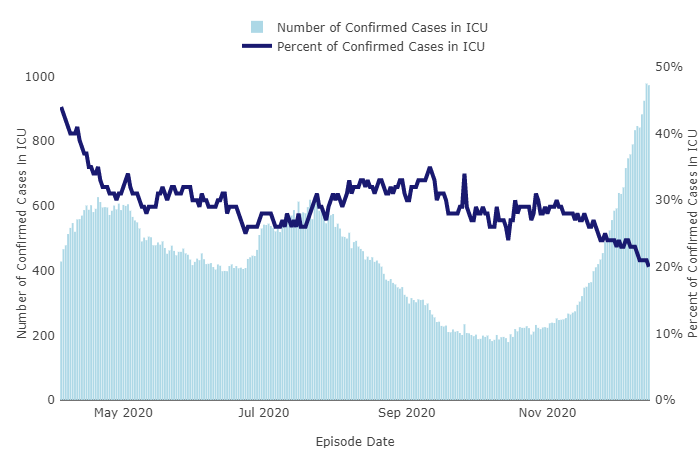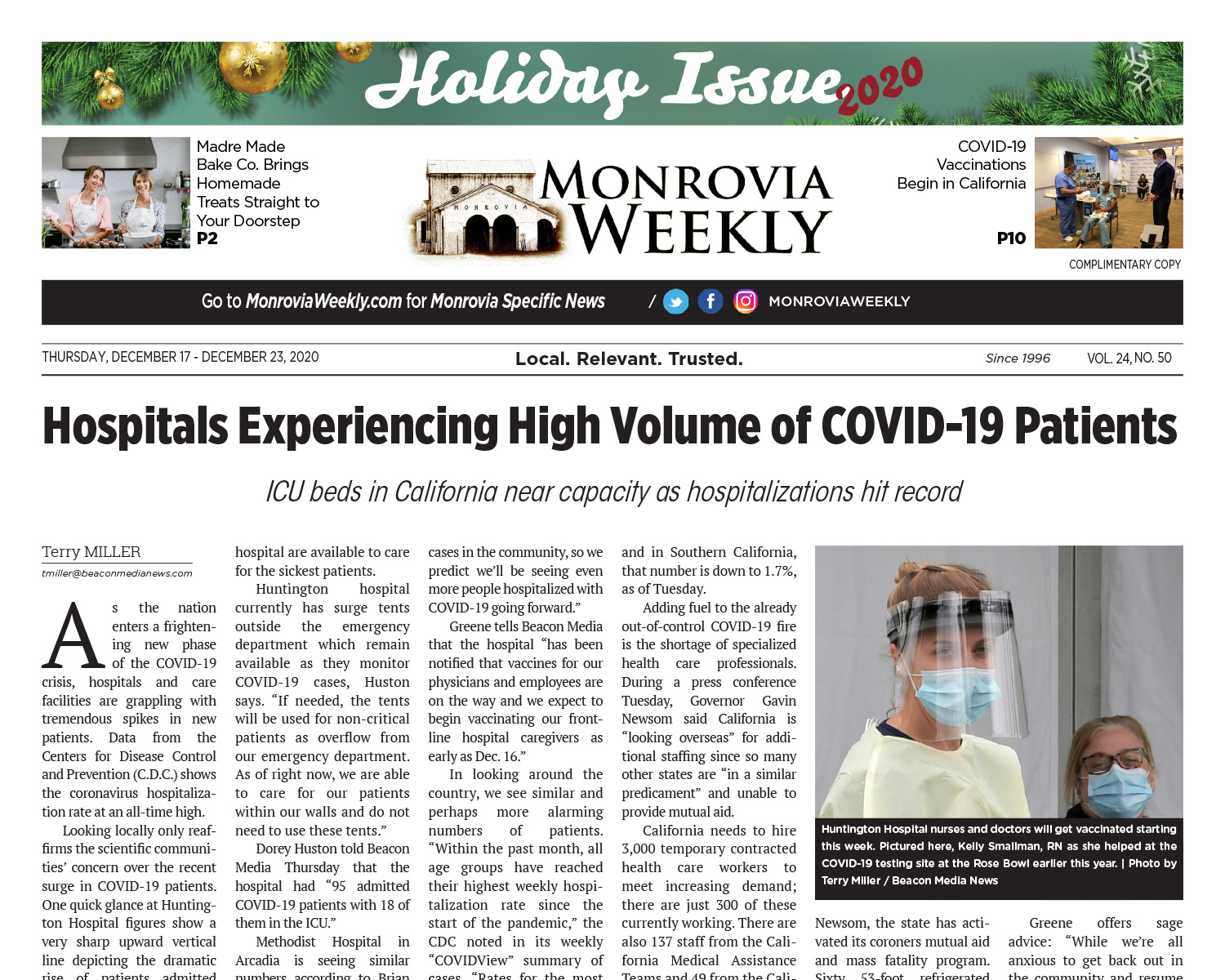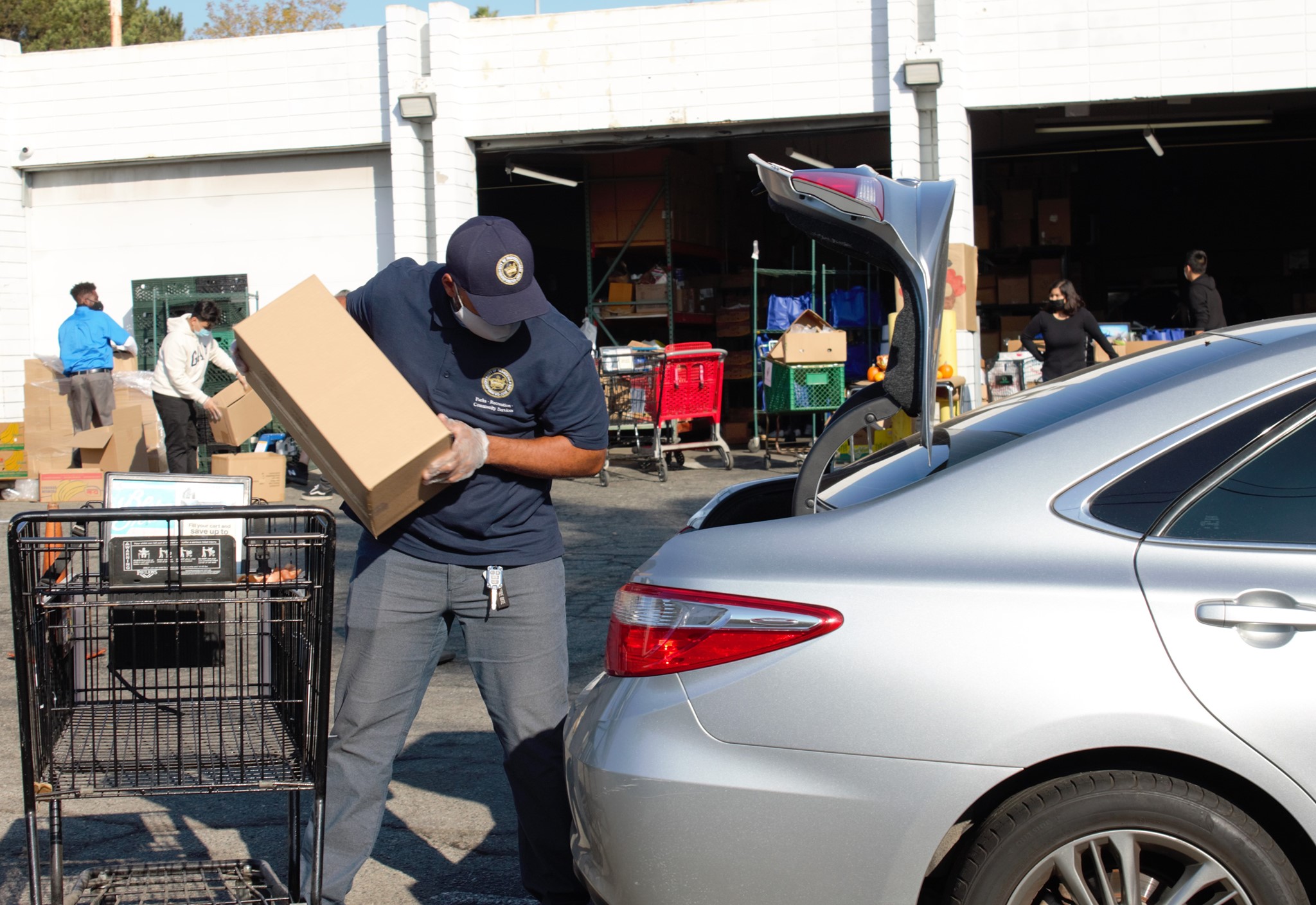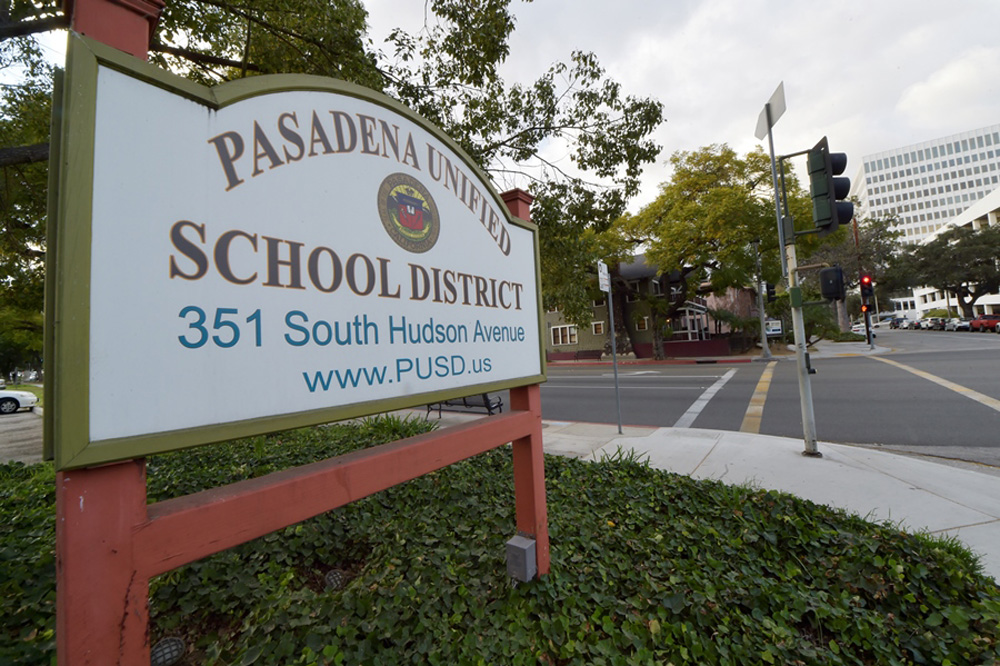
By May S. Ruiz
Nine months into the coronavirus pandemic, COVID-19 continues to challenge school systems, teachers, and students. Distance learning, while it’s better than not having any kind of learning at all, isn’t effectively reaching all students.
Fortunately for students in the Pasadena Unified School District (PUSD), administrators reacted quickly following the lockdown restrictions. Within two weeks, remote learning was in place — hotspots were provided for families with no internet access and iPads and chrome books were sent to students’ homes (read related article here). All that, however, doesn’t guarantee student success. As teachers would tell you, it’s hard enough engaging students when they’re in the classroom; remote learning presents more complications.
It is in this area where the Pasadena Educational Foundation (PEF) comes in. For almost 50 years, PEF has been a PUSD partner with a mission to support, enhance, and supplement the programs, initiatives, and priorities of the school district. It created the Teacher Grant Program to help bring more creativity, innovation, and inspiration into PUSD classrooms by providing the resources needed to help teachers and principals take their creative projects from idea to reality and enhance the classroom experience for their students. This year, 181 educators received awards representing 124 unique proposals from every school in the district — many of them addressed the unique resource needs of distance learning.
Three special honors were given to recipients whose proposals exemplified the qualities embodied by the individual after whom the award is named.
The Calvin Hunt Arts Award was created in memory of Calvin Hunt who, as director of the Alvin Ailey American Dance Theatre, took dancers all over the world as cultural ambassadors. This award promotes and supports dedicated teachers enhancing arts education in PUSD. It went to Pasadena High School’s (PHS) Hillary Temple, who proposed a dance room download.
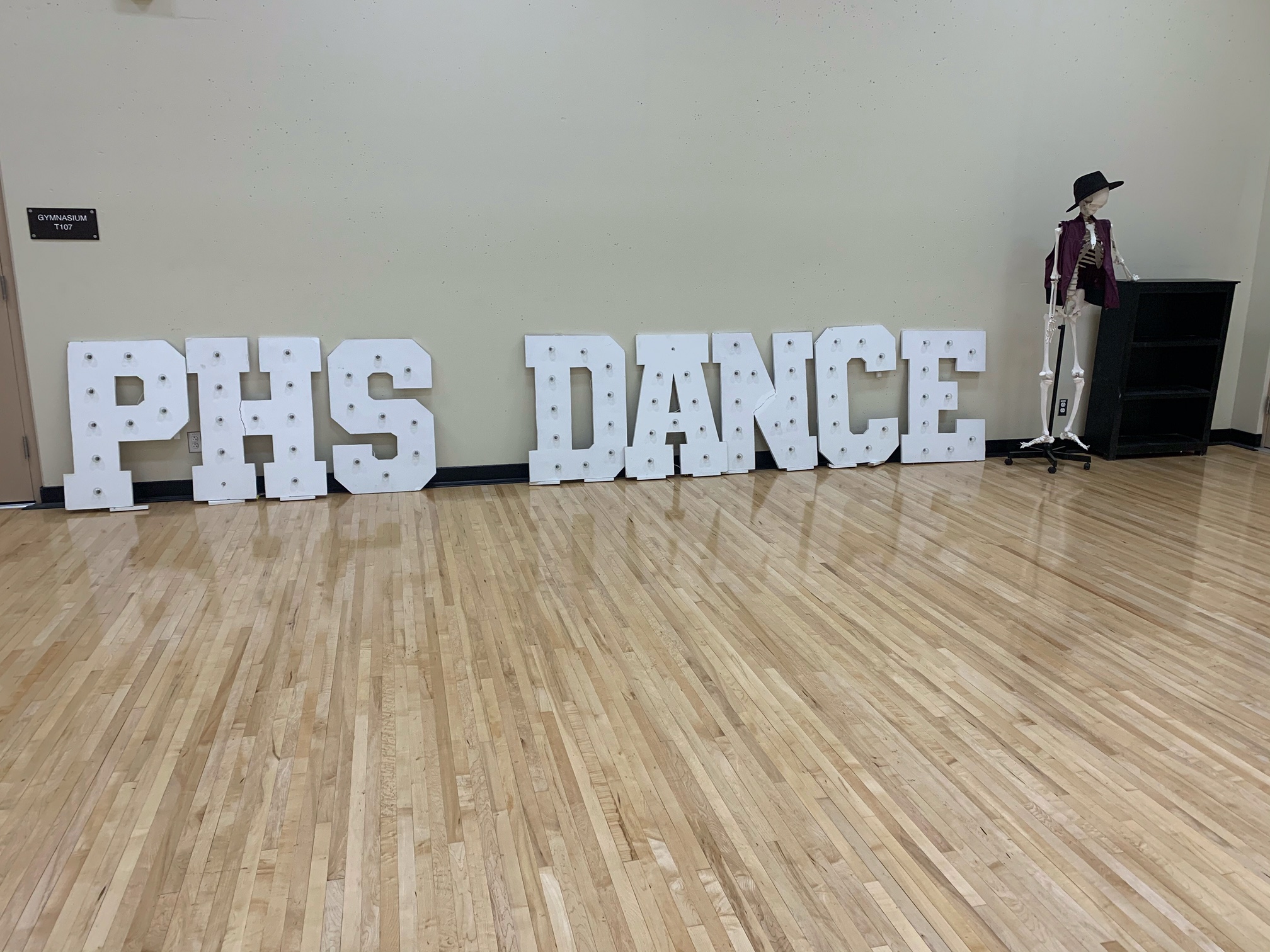
This is Temple’s second year teaching all levels at PHS. Interviewed via email, she relates the challenges she’s encountered during remote learning and how she overcomes them. “Some of them include technology/WiFi issues for students or myself, lack of ability to communicate, and not being able to see the kids at all times. I think the key to overcoming teaching dance online would be to just have an open mind, trust your students, and laugh things off. It’s not going to be perfect because these are unprecedented times, so we have to make the best of it, still challenge our students and laugh at ourselves or the technology when it’s acting up.”
Asked about her Teacher Grant proposal, Temple says, “We just got a new dance room at PHS and it’s beautiful. However, there were no furniture, white boards, projector, etc. I am doing a ‘dance room download’ to bring the room up to date and to give our students the most amazing dance program I can.”

With the purchase of a television and sound system, students would be able to use their computers to broadcast their ideas and thoughts and become leaders via tech in the classroom through assignments and presentations. In addition, this will upgrade the dance room to standards used at most Cal State and UC classrooms to enhance the experience of a beginning dancer.
“I am super proud of my students and learning dance at home,” Temple hastens to add. “Learning how to dance, in general, is difficult. With the added stress of not knowing which way I’m truly facing, not being able to hear me or the music well, not having a mirror, etc., the kids are doing really well and they are dialed in. I feel blessed to have such motivated students who are making the best of my class — they are awesome.”
The Jarratt Brunson Memorial Award for Literacy honors the late Jarratt Brunson, the PEF founder who initiated the Teacher Grant Program. It goes to the proposal that best reflects Jarratt’s passion for reading and early literacy. This year it was given to Kathryn Marquez at Madison Elementary School who proposed Libros Para Todos! (Books for All!).
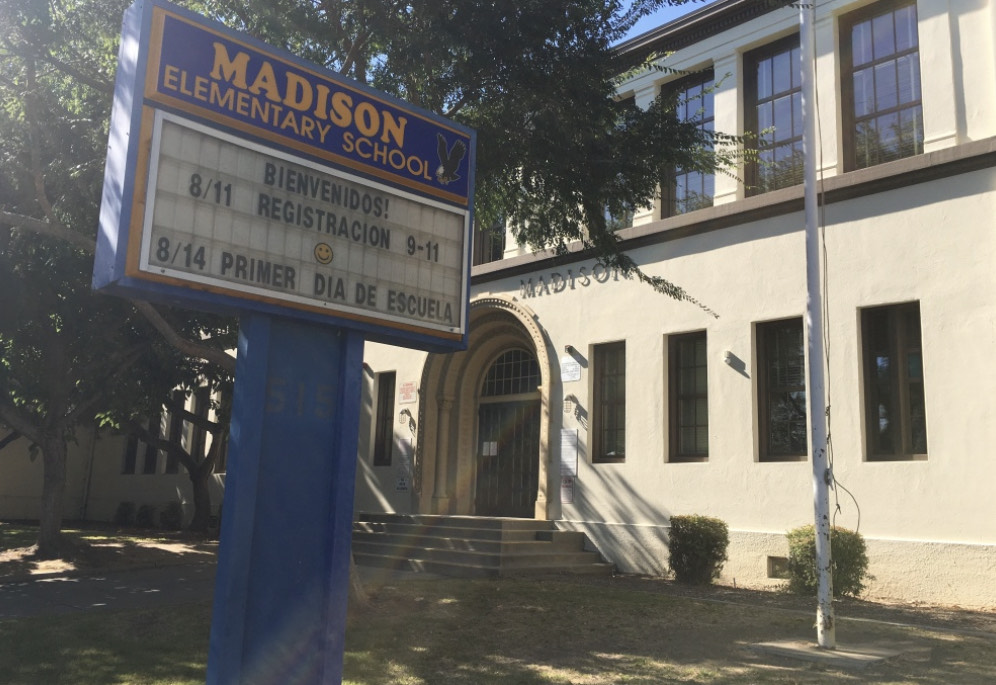
Marquez, a first grade teacher at Madison Elementary School, relates, “My previous school closed at the end of the last school year, so this is my first year at Madison. It has been challenging to join a new school while learning to teach remotely using new mediums. Sometimes, technology refuses to cooperate! What makes it worth it is getting to know my students and developing relationships with them.”
“When I taught at Jefferson, I applied for and received the Jarratt Brunson Grant for Literacy, which enabled me to have four Little Free Libraries installed around the school,” continues Marquez. “LFLs are known around the world for their philosophy of Take a Book…Return a Book. I brought one of the libraries with me to Madison, where it is waiting to be installed. To my astonishment, I have been awarded this prestigious grant once again!
“I will be ordering a large selection of Spanish language and bilingual books to distribute to our school community. In this time of a pandemic that has so upended our lives, while students have no access to our school library, it is my goal to put books into the hands of families for whom Spanish is their home language. As they finish with the stories, they can return them to the LFL and choose a different one. It is my dearest hope that multiple generations share and enjoy these books.”
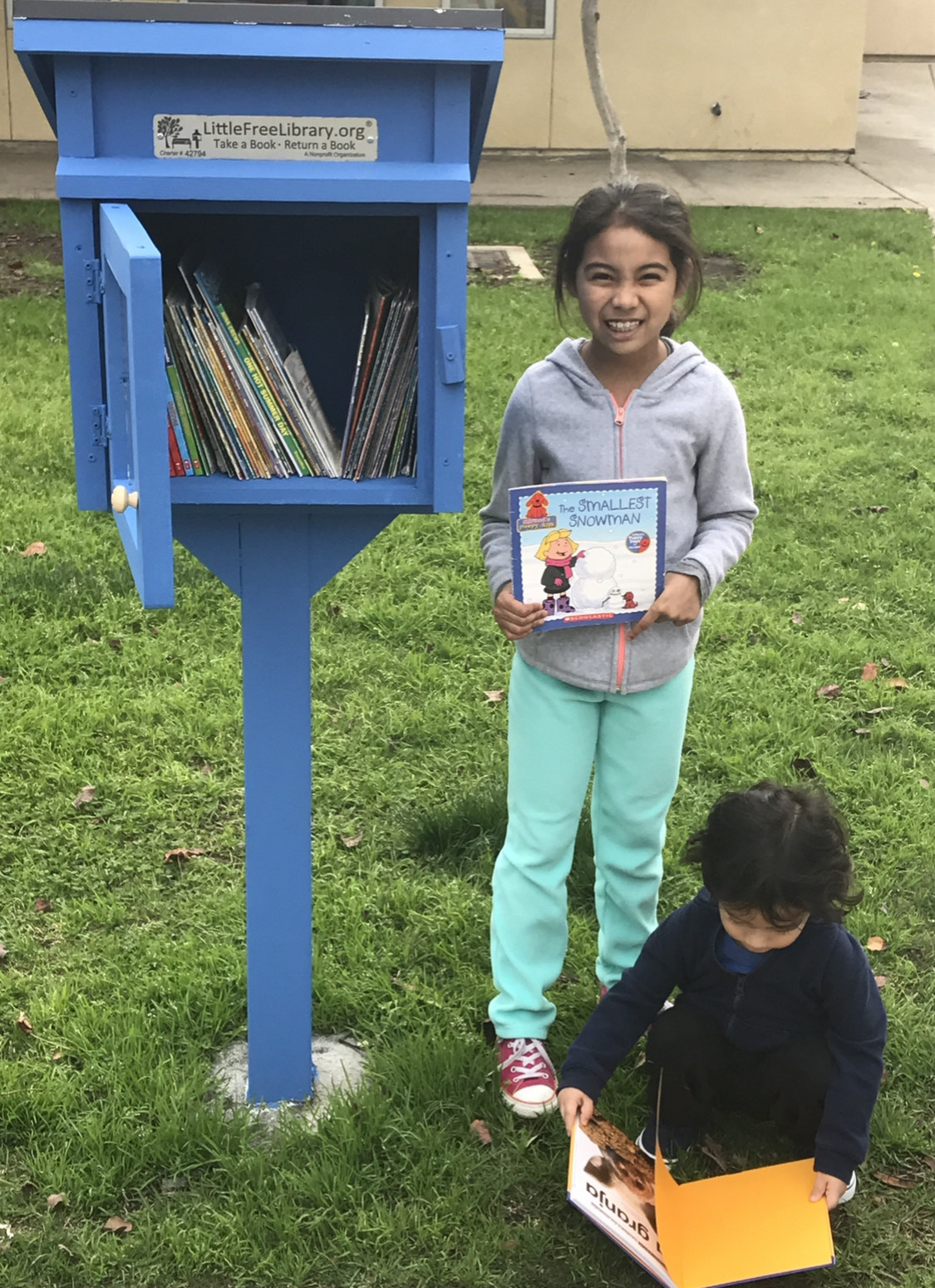
The Kathy Onoye Principal Award goes to the PUSD administrator whose proposal best exemplifies their role in inspiring leadership. The 2020 winner is Angela Baxter of Willard IB which received two grants: a Schoolwide Grant – Grade Level Ukuleles and a Teacher Grant – Set of iPads for song writing and infomercials connected to students’ IB units of inquiry.
Linda Wittry, the teacher who proposed the projects, has been at Willard Magnet for 31 years as IB coordinator, working with teachers in designing and implementing the six inquiry units taught at each grade as part of the International Baccalaureate Primary Years Program.
Being outside the classroom has freed Wittry to set a schedule that helps her support various programs and projects for the school. She organizes monthly assemblies, musicals, and events, including the International Fashion Show, International Dance Festival, Rock and Roll Day, and Hispanic Heritage Assembly with a mariachi band. Additionally, as extra music instructor, she teaches first grade keyboards, second grade recorders, third grade ukuleles, fourth grade guitar, fifth grade keys, guitar, rock band.
The pandemic posed a problem, though. Says Wittry, “Having enough instruments for students to check out and not to share when back on campus was a challenge. So I proposed getting a grade level set of ukuleles to be used by third and fourth grade students during different times of the school year and, ultimately, for all students to have access to instrumental music.”
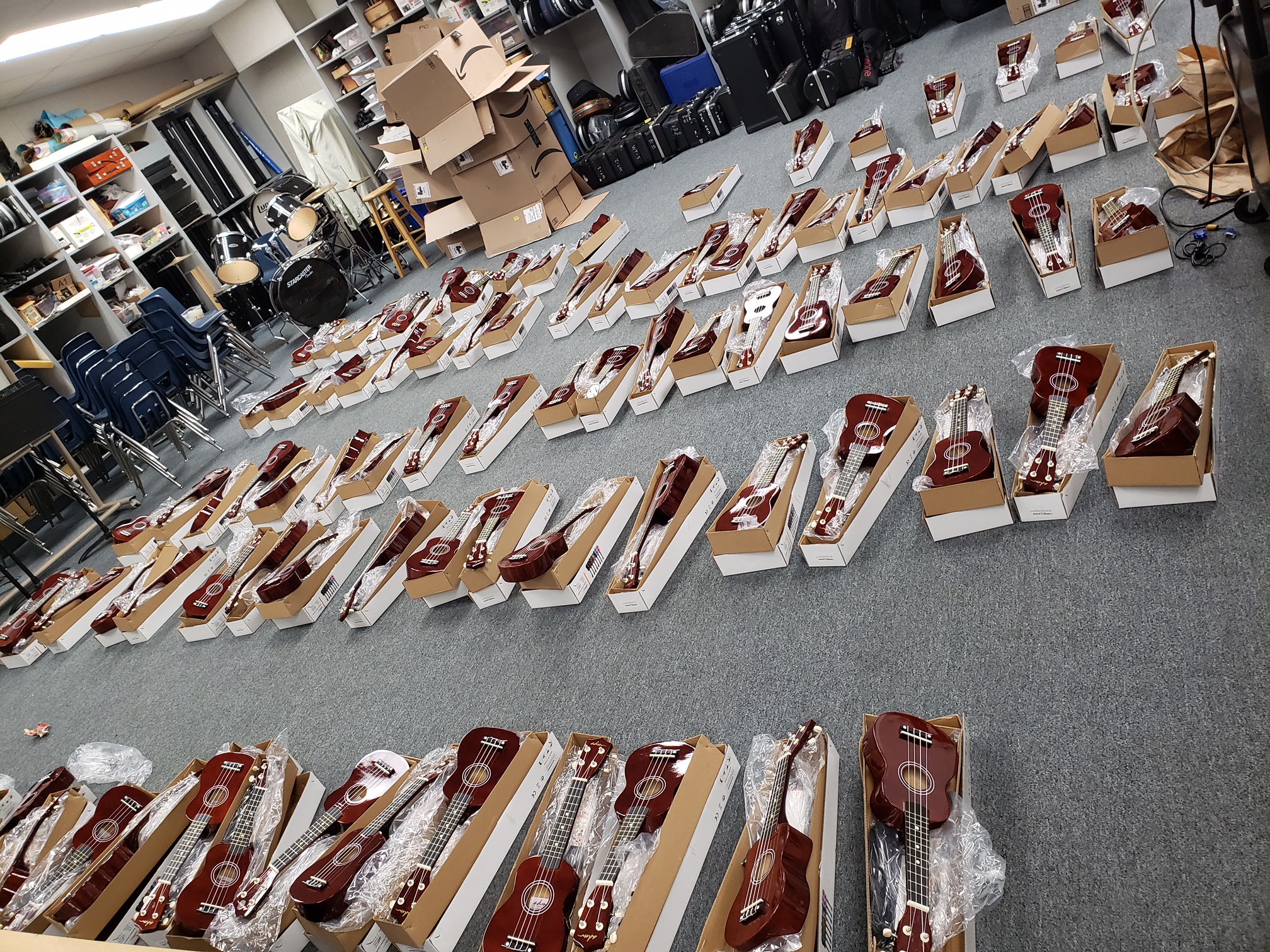
As Wittry explained in her proposal, the far-reaching purpose of the project is to maximize musical experiences for children through the use of a grade level set of ukuleles during distance learning and beyond. The project will provide grade level ukulele experiences for all fourth graders during distance learning; provide ukulele experiences for each grade level team three-five in the year following distance learning; create a long term contemporary ukulele course for all third graders at Willard; create a generation of students that can play multiple musical instruments; equip students with the ability to become proficient at: playing rhythms, chords, and songs on the ukulele; and give students the opportunity to invent and create their own songs individually or in cooperative groups.
For the iPad Song Teacher Grant, Wittry proposed purchasing a set of iPads and, with a Garage Bank app, provide opportunities for Willard’s second to fifth grade students to create music and music videos, write original songs, and produce infomercials. Moreover, these tools will give students another creative format to present to the class their research findings related to their IB course.
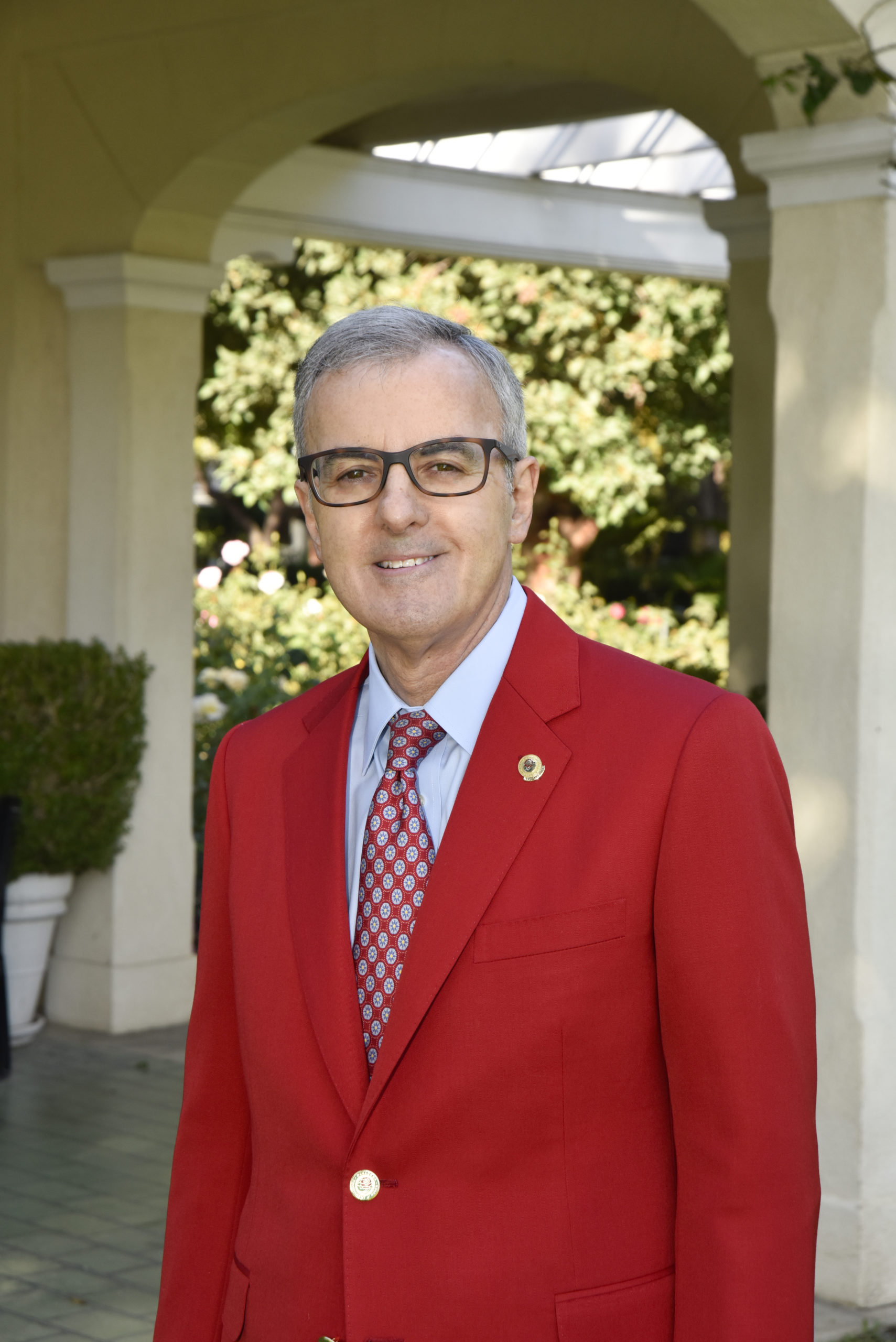
PEF’s Teacher Grant is made possible through donations from the College Football Playoff (CFP) Foundation and the Pasadena Tournament of Roses Association (TofR). Speaking with me by phone, Dr. Robert Miller, TofR’s president and chairman of the Board, declares, “Investing in our community has long been one of the association’s principal goals. Particularly this year, given the suffering that is taking place during the pandemic, we felt it was important to increase our presence and profile, and to continue to contribute to our community. PEF, which has been a long-time supporter of PUSD, remains one of the organizations we want to work closely with in promoting public education in the city of Pasadena.
“Education has been one of the sectors most impacted by the pandemic. But despite all the challenges, PUSD teachers have adapted quite well. They found creative ways to engage their students and I think they deserve our support more than ever. They continue to rise to the challenge of keeping students learning in a difficult environment.”
States Dr. Miller, “It’s incredibly satisfying to see where our donation goes. It’s being used to fund remote dance and music performance classes, art exhibits, science experiments — we’re giving take-home art and science supplies; we’re furnishing ukuleles and percussion instruments; we’re equipping art teachers with cameras to record and the technology to play back their performances, and document cameras for books and demonstrations; we’re providing books in Spanish, French, and Mandarin. Our donation benefits thousands of students in Pasadena, Altadena, and Sierra Madre.”
Dr. Miller, along with PUSD Superintendent Dr. Brian McDonald, presented the grant to the teachers during a drive-thru celebration and parade. He enthuses, “I was particularly honored and pleased that I had the opportunity to welcome and meet the educators who received the award. They were incredibly enthusiastic. I was amazed how many showed up to receive the grant in person, who arrived in wonderfully decorated cars. It made me feel good to know that there are dedicated teachers here who give of themselves in ways that are far beyond what we expect and what they earn; they care deeply for their students. It is just one of the honors I have as TofR president — to represent our 935 members and say ‘thank you for your incredible service.’ It was a wonderful experience.”
At the helm of PEF is Dr. Patrick Conyers, who has been the executive director for 10 years. He graciously agrees to be interviewed by email to expound on his functions, the organization’s activities, and its future goals.
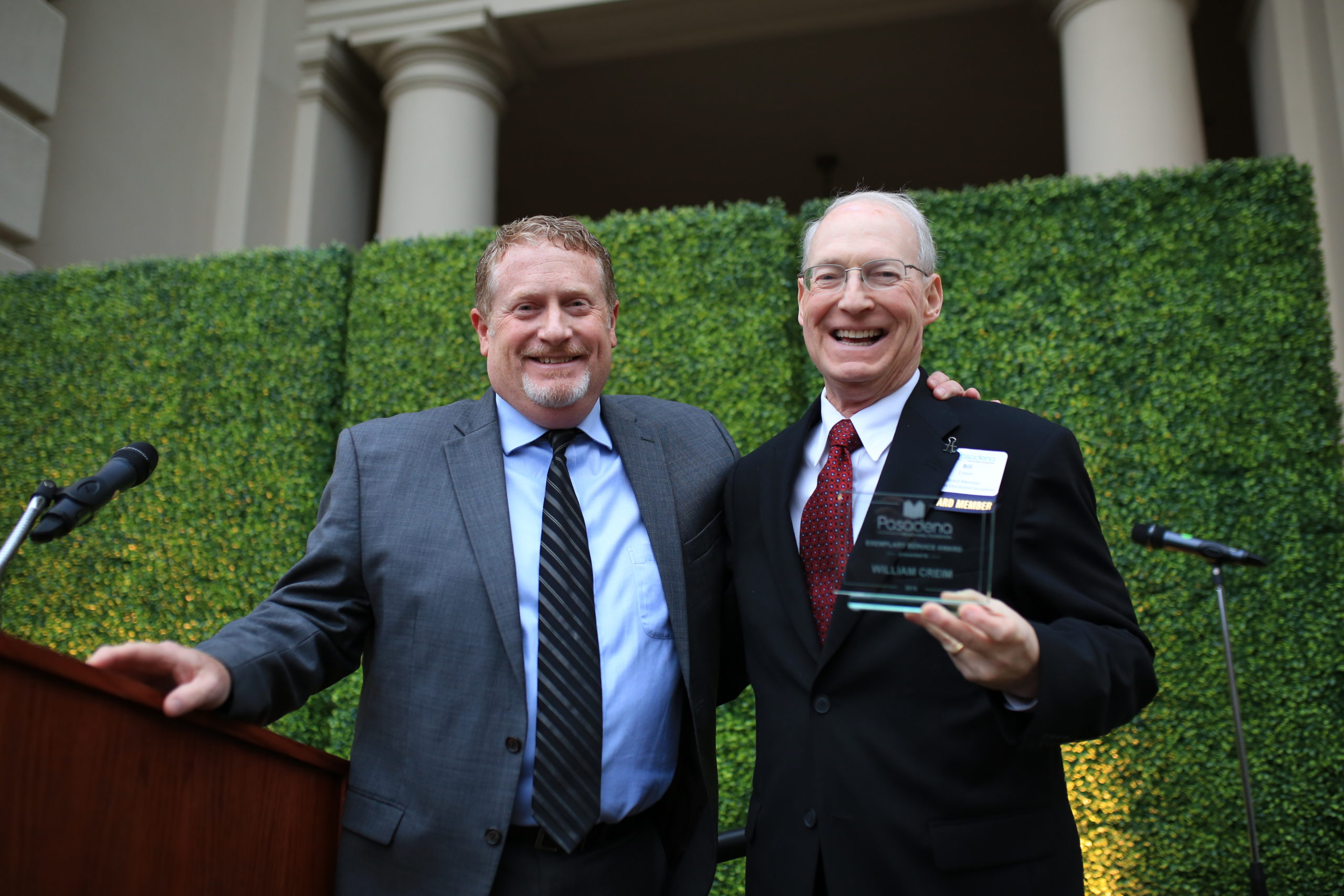
Having read on his LinkedIn profile that he was the director of development at two Pasadena organizations, I inquire how those previous posts benefited PEF and its mission. Dr. Conyers replies, “I was Director of Development at Southern California Public Radio (KPCC) and, before that, the Pasadena Museum of History. I learned a great deal about the nonprofit world and philanthropy in our community from Bill Davis, CEO, and Mark Crowley, general manager, at SCPR, and from Jeannette O’Malley, PMH’s executive director. I learned how to set aggressive goals for a charitable organization, and meet those goals. Both organizations have an entrepreneurial spirit, which is something I’d like to think PEF has as well.”
Asked if he introduced new initiatives when he first came on board, Dr. Conyers answers, “PEF was a venerable and effective organization when I arrived. The organization, through the leadership of my predecessor, Joan Fauvre, and the rest of the Board and staff of PEF, was making a positive impact in the educational experience of PUSD students. My charge was to grow the organization, so we could be still more impactful. Sometimes, that effort at growth meant paring back some activities, so we could focus more energy on the most important programs and initiatives.
“Other times, what was needed was to grow already successful programs (like finding more funding and partners to expand the Teacher Grant Program, and increasing our capacity to serve more students in our Summer Enrichment Program). We have launched new programs during my tenure, too, and I am very proud we’ve been able to do that successfully. Programs like the App Academy, an innovative four-year computer science program at Pasadena High, and the Pasadena Math Academy, an accelerated math program for gifted PUSD math students in grades five to 12, have been great successes, and display an effective partnership among PEF, PUSD, and community members willing to give of their time, expertise, and financial resources to launch and grow new and engaging educational programs.”
In his 10 years’ leadership, Dr. Conyers thinks the most significant shift that has taken place is the growing awareness that prevailing views about Pasadena schools don’t reflect reality. He explains, “For too long, there has been a ‘perception gap.’ Many people in the community are holding on to outdated and inaccurate beliefs about the quality of education in our schools when, in truth, reality outpaces perception. The Board and staff of PEF have worked diligently to provide information that has helped shrink that perception gap. We know that by encouraging people to look for themselves and hear from educators and see the impact that community support is making, the gap would inevitably go away. The shrinking of that gap has been accelerated by excellent partners, including former Mayor Terry Tornek, partnering organizations like PEN, College Access Plan (CAP), Collaborate PASadena, Young & Healthy, and others, and enthusiastic parents, educators, and engaged community members. The recent successful passing of Measures J and O are testaments to the recognition our community has for the importance of quality, well-funded public education.’
I ask Dr. Conyers if there’s a project he started which has flourished and expanded and he says, “Our Realtor Initiative is something I am very proud of, but I wouldn’t say that I started it. A group of our Board members (Lorna Miller, Dawn O’Keeffe, George Brumder) recognized how important area realtors are in welcoming families to the community and informing them about public/private school options. But they also knew that what was needed wasn’t just feeding information to realtors, which they in turn could pass along to clients; we needed to hear from realtors themselves about what they knew/didn’t know, what they needed to be informed, and how they preferred having information shared with them. Over the past several years, through our Realtor Initiative, we have built and grown positive relationships with area realty offices and with PFAR (Pasadena Foothill Association of Realtors). There is a Realtor Certification that PFAR awards to agents who have taken a short, informative course about PUSD schools and programs. I’m grateful that a second generation of PEF Board members, namely Del Lile and Jennifer Miyake-Trapp, have taken over leadership of this initiative on the PEF side, as well as Monica Lopez, from our staff. The program itself has been featured in scholarly publications and videos, and we have had countless discussions with organizations like ours from around the country, who are wanting to start a similar effort.”
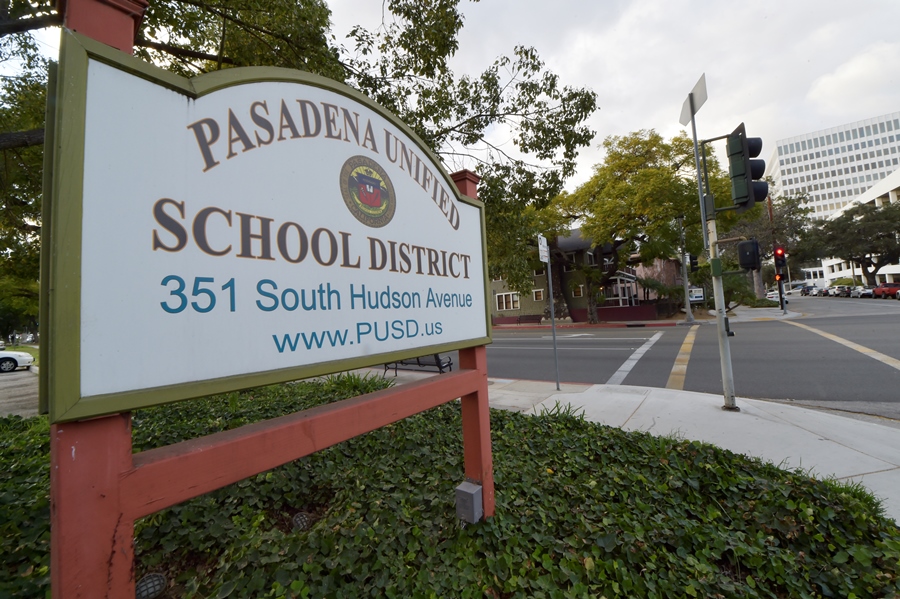
Among the various programs that the PEF has created is one called ‘My Masterpieces,’ (read My Masterpieces series here) which has a huge impact on young students. I ask Dr. Conyers if there is a singular initiative that has the most lasting influence on students.
“My Masterpieces is an excellent program, and one that other communities would not be able to replicate,” Dr. Conyers pronounces. “It involves many wonderful partners, who are combining their expertise and energies for the benefit of our community’s public school students. We’ll never know how many students had their eyes and futures opened to them through a visit to the Armory, or The Huntington, or Norton Simon. Much of the work in education is, of course, aspirational — open doors, provide opportunities, spark imaginations, and help young people find and release their immense potential.
“I also think our Teacher Grant program is having enormous influence. This year alone we were able to give grants to teachers and/or principals at every PUSD school. A couple years ago we awarded the Kathy Onoye Principal’s Award to Brian Stanley, the outstanding principal at Rose City Continuation High School, which enabled him to renovate a room on campus into a library; the next year, we awarded his school another grant to help purchase additional books to fill out the shelves. As with all the programs we do, we don’t always know the impact our work has on an individual student, but I have to believe more books in more students’ hands is having a profoundly positive impact.”
Given how the pandemic has affected the economy and people’s pocketbooks, I inquire if that changed the way PEF raised funds and how it allocated them. “Our mission is to support, enhance, and supplement the programs, initiatives, and priorities of the PUSD,” clarifies Dr. Conyers. “To that end, our work has traditionally focused on providing resources to teachers and administrators to amplify the good work they are already doing, and to enable innovative new programs to get off the ground. When the pandemic hit, we recognized that there were significant impediments that could make basic learning more difficult for many students in our community. The safety and well-being of PUSD students and staff became our priority. We created a Response Fund, and have been grateful for the many individuals and foundations that have generously contributed. The Response Fund was created to help distribute meals to area families (our volunteers helped to distribute more than 660 thousand meals), to help students with tech and connectivity needs, and to enable us to print nearly 2,000 face shields on 3D printers that we distributed to PUSD Food Services, custodial staff, and to community partners like the Rose Bowl Aquatics Center and Children’s Hospital LA.”
I ask what lessons were learned and how those can help PEF in the future, and Dr. Conyers says, “We are hearing from our PUSD colleagues that the pandemic and distance-learning are widening the gap between families with means and those without. We are committed to helping the district in every way we can to provide equitable resources and educational opportunities to every PUSD student.”
Through its numerous initiatives, PEF has done much to help students in the district. However, the work is far from finished. Dr. Conyers declares, “I think it’s time for our community, and our nation too, to have a dialogue about public education. Educating the young people of our community and helping them to be responsible citizens, critical thinkers, and practiced problem solvers is a responsibility we have for them. We need to renew our commitment to public education and devote our resources and energy that young people deserve. I’d like PEF to lead the effort to creating that dialogue in our community.”
Lastly, Dr. Conyers imparts, “If there was one thing I would like people to remember when they look back at my stewardship, it would be that our schools are stronger because of the hard work of PEF and its supporters.”



